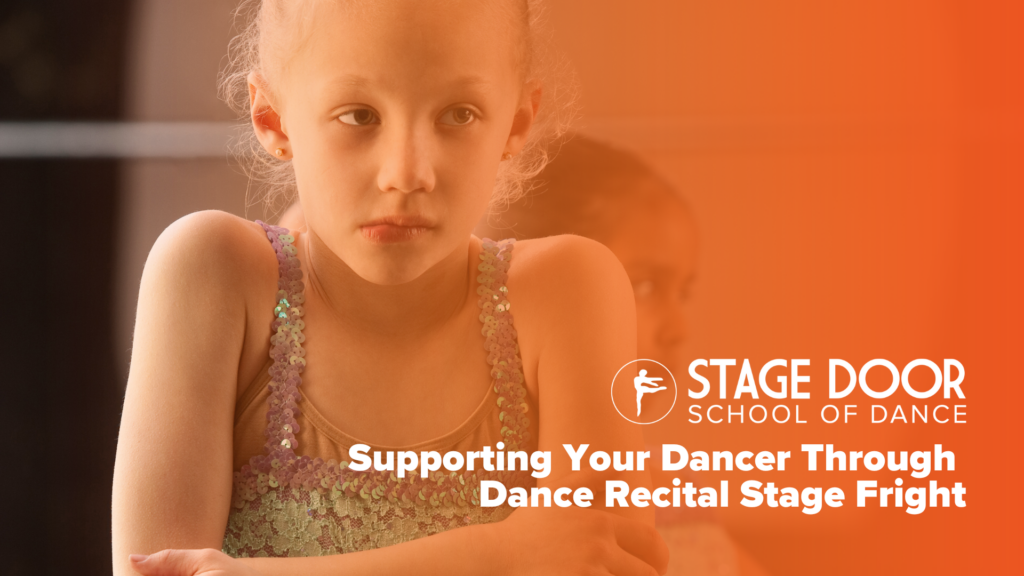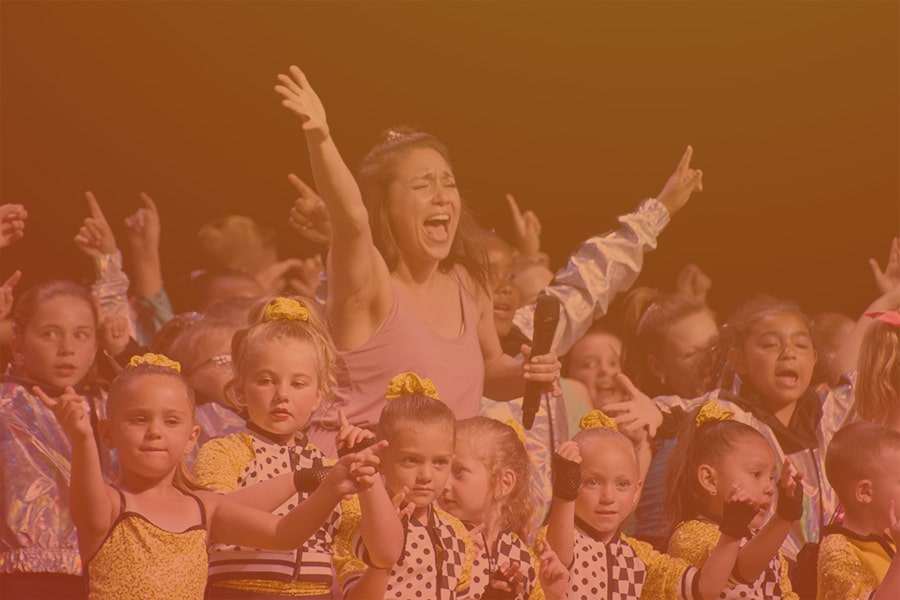Every year, dance recitals are an exciting chance for students to showcase their passion, talent, and hard work. But as the date approaches, many young dancers face a common and overwhelming problem: stage fright. This form of anxiety can manifest in physical symptoms like sweating, trembling, and butterflies in the stomach. As a parent, you may feel helpless seeing your child struggling with stage fright, but there are ways to support and guide them through this challenging experience. Let’s explore the causes, signs, and consequences of stage fright in young dancers, and offer some practical tips and strategies to help your child overcome, and enjoy their time on stage.
First, let’s define what stage fright is and how it affects dancers. According to the Anxiety and Depression Association of America, stage fright, also known as performance anxiety, is an excessive fear of being watched or judged by others during a public performance. It can be triggered by various factors, such as lack of confidence, perfectionism, pressure, self-doubt, past negative experiences, or even genetics (Thanks Great Great Grandma!). Stage fright can lead to a range of physical, mental, and emotional symptoms, such as rapid heartbeat, dry mouth, forgetfulness, self-criticism, panic attacks, and what we see most, avoidance behaviors; i.e. the ‘I don’t wannas!” In the context of dance recitals, stage fright can interfere with the dancer’s ability to remember steps, express emotions, synchronize with the music, or connect with the peers. It can also affect the dancer’s motivation, joy, and self-esteem, causing them to feel disappointed, frustrated, or even give up dancing altogether.
As a parent, you play a crucial role in helping your child cope with stage fright. Here are some suggestions that you can implement before, during, and after the dance recital:
1. Create a supportive and positive environment
Encourage your child to share their feelings and worries about the recital with you or their teacher. Listen actively and empathetically, without judging or minimizing their concerns. Reassure them that it’s normal to feel nervous before a performance, and that it’s not a sign of weakness or failure. Praise their efforts and progress, rather than their achievements, and remind them that the most important thing is to have fun and express themselves through dance. Avoid putting too much pressure or expectation on your child, and instead focus on their enjoyment and personal growth.
2. Practice relaxation and breathing techniques
Help your child learn some relaxation and breathing exercises that can reduce stress and calm the nerves. For instance, you can ask them to close their eyes and imagine a peaceful scene, like a beach or a forest, and focus on their senses (sight, sound, smell, touch, and taste). You can also practice deep breathing together, where your child inhales through the nose and exhales through the mouth, counting to five for each step. These techniques can be done at home, in the car, or backstage, and can help your child feel more grounded and centered before the recital.
3. Prepare effectively and realistically
Encourage your child to practice regularly, but not excessively or obsessively. Help them plan their rehearsals, including breaks, snacks, and hydration. Make sure they have comfortable and appropriate dancewear, shoes, and hairstyles. Prepare them for the logistics of the recital, such as the arrival time, the backstage rules, and the order of the performances. Remind them to bring their smile, their passion, and their own unique style to the stage, and not compare themselves to others.
4. Celebrate and debrief afterwards
After the recital, celebrate your child’s accomplishment, regardless of the outcome. Acknowledge their courage and effort, and praise them for trying their best. Ask them how they felt during the performance, what they liked or disliked about it, and what they learned from it. Share your own observations and feedback, but avoid criticizing or belittling their mistakes or flaws. Encourage them to focus on the positive aspects of the experience and to use it as a learning opportunity for future performances.
Stage fright is a common and normal experience for many young dancers, but it can be challenging and distressing. As a parent, you can offer your child the support, guidance, and encouragement they need to navigate their fears and enjoy their dance recital. By creating a positive and supportive environment, practicing relaxation and breathing techniques, preparing effectively and realistically, and celebrating and debriefing afterwards, you can help your child develop resilience, confidence, and self-esteem.
If you’re interested in enrolling your child in dance classes, consider checking out the Summer 2023 dance programs at the Stage Door School of Dance. Our highly trained and experienced teachers offer a variety of dance styles, from ballet to hip hop, and foster a nurturing and inclusive community for all students. At Stage Door, we believe that dance is not just about the steps, but also about the joy, creativity, and self-expression it brings.
Even if you aren’t a dancer or parent, you are cordially invited to join us for our annual recital “Mission: Beyond Dance” at the Staller Center on June 10th & 11th, and witness the talent, passion, and hard work of our dancers. Whether your child is experienced or a beginner, we welcome them to unlock their potential and shine on stage. Thanks for reading, and we hope to see you and your child at our dance classes soon!


